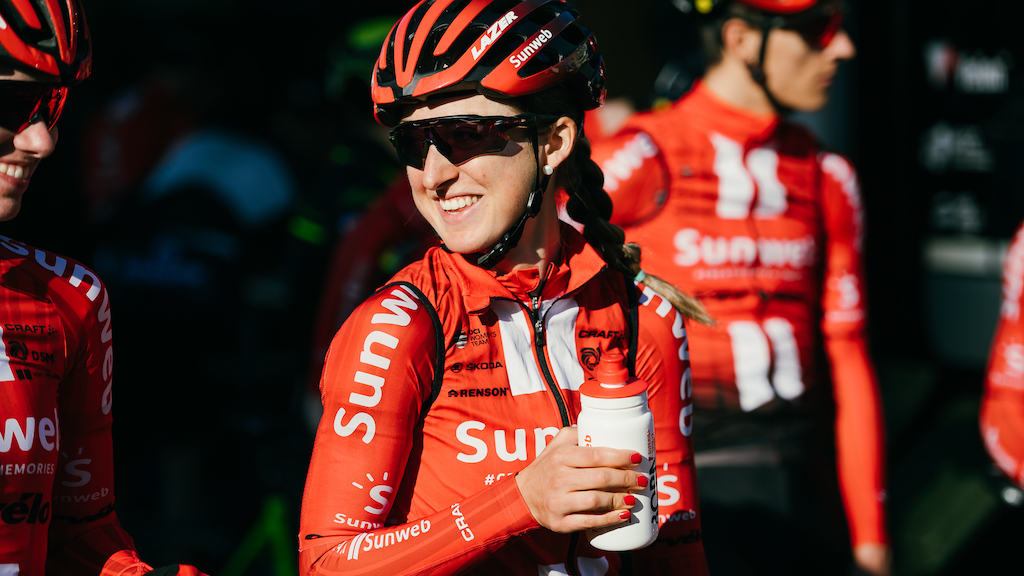Leah Kirchmann says women’s Tour de France could bring in new fans
Though the event "isn't essential for women’s cycling to thrive"

On Tuesday, Tour de France director Christian Prudhomme announced that a 2022 women’s Tour de France was in the works. Canadian Team DSM cyclist Leah Kirchmann says that the announcement is “really positive news.”
RELATED: There will be a women’s Tour de France again in 2022
Organizers have not yet shared much information on the event, but there are a few things we know so far. As of now, the race is scheduled to take place after the men’s Tour. The women’s Tour will be its own unique event, with a different route from the men’s Tour de France. According to Prudhomme, the women’s stages won’t need to have “50 hyper-steep climbs” to break up the peloton like the men’s stages. “Women’s cycling has a very high level, but it’s more disparate,” he said.
Past women’s tours
This isn’t the first time women will have a Tour de France event. Amaury Sport Organisation (ASO), the organizers of the Tour, organized a women’s Tour de France (known as the Tour Cycliste Féminin) from 1984-1989. In 2014, ASO brought back the women’s race in a small way, by hosting La Course by Le Tour de France, a one-day event. This year, La Course was almost turned into a stage race, but COVID rescheduling meant that it would have conflicted with the Olympics. In 2022 the race will finally take the steps to grow into a multi-day event.
“Many fans and riders have been waiting for the race to expand ever since they brought back a women’s event with La Course,” says Kirchmann, who finished third at La Course in 2014 and second in 2019.”In my personal experience, my podium finishes in La Course have led to the most media coverage, especially in more mainstream publications, so I think a women’s Tour de France could bring a lot of global attention and new fans to women’s cycling,” she says.
Already a topic of debate
Though the race hasn’t even happened yet, Prudhomme is already warning that the women’s Tour de France may face cancellation if isn’t financially stable, citing the women’s Tour of the 80s. “In my view, you have to put to one side the idea of parity between men and women,” he said. “Why? Because there was a reason why that race only lasted for six years, and that was a lack of economic balance. What we want to do is create a race that will stay the course, that will be set up and stand the test of time. What that means is that the race cannot lose money.”
There have been no announcements on whether the race will have full live coverage or if it will be only partially broadcasted, as are many women’s races.
For Kirchmann, while the race is an exciting development, it’s not the be-all and end-all of women’s cycling. “I don’t believe that a women’s Tour de France is essential for women’s cycling to thrive,” she says. “However, the race will definitely help raise the profile of women’s cycling since it is still the most recognized race in the world.”
